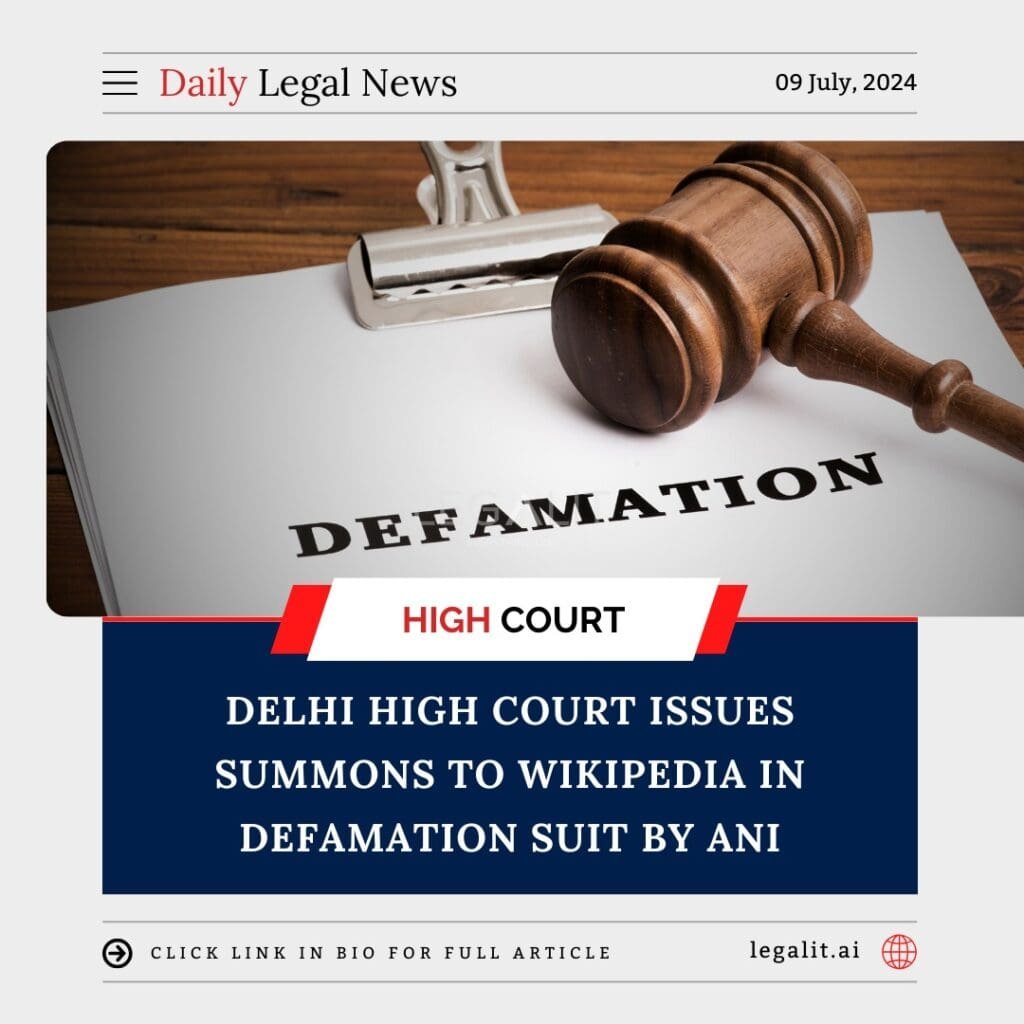
The Delhi High Court has issued summons to Wikipedia in connection with a defamation suit filed by the Asian News International (ANI). This suit involves allegations that certain content on Wikipedia has damaged the reputation of the news agency.
Background of the Case
ANI, a prominent Indian news agency, filed a defamation suit against Wikipedia, alleging that certain entries on the platform contained false and defamatory information. ANI argued that the content in question misrepresented facts and negatively impacted its reputation and credibility.
Court’s Summons
The Delhi High Court, upon reviewing the petition, issued summons to Wikipedia, requiring it to respond to the allegations made by ANI. The court’s decision to involve Wikipedia highlights the growing concerns about the accuracy and accountability of user-generated content on such platforms.
Legal Considerations
- Defamation Law: Defamation involves the publication of false statements that harm someone’s reputation. In this case, ANI claims that the Wikipedia entries included incorrect information that defamed the agency.
- Platform Accountability: The case raises important questions about the responsibility of platforms like Wikipedia, which host user-generated content, to ensure the accuracy and reliability of the information they publish.
- Right to Reputation vs. Free Speech: The legal battle also touches on the balance between protecting an individual’s or entity’s reputation and upholding the principles of free speech and open access to information.
Potential Implications
- Content Moderation: This case could set a precedent for how online platforms handle and moderate user-generated content, especially in terms of defamation and misinformation.
- Legal Responsibility: Depending on the outcome, Wikipedia and similar platforms might face increased legal scrutiny and potential changes in how they manage and verify content.
- Impact on Wikipedia: The case could lead to a review of Wikipedia’s policies and practices regarding the monitoring and editing of its entries to prevent defamatory content from being published.
Reactions
- Legal Experts: Some legal experts view the summons as a necessary step to hold online platforms accountable for the content they host, while others warn of potential overreach and the stifling of free expression.
- Public Opinion: The general public has shown mixed reactions, with some supporting ANI’s efforts to protect its reputation and others emphasizing the importance of preserving the open and collaborative nature of platforms like Wikipedia.
Conclusion
The Delhi High Court’s decision to issue summons to Wikipedia in the defamation suit filed by ANI marks a significant moment in the ongoing dialogue about online content moderation, platform accountability, and the balance between free speech and reputation protection. The outcome of this case could have far-reaching implications for how user-generated content is managed on digital platforms.